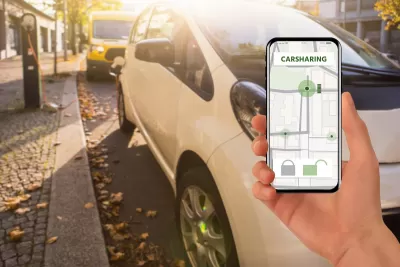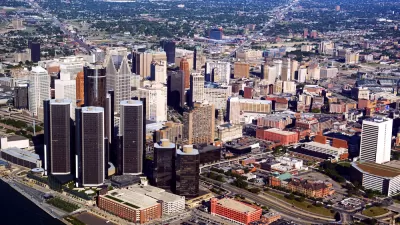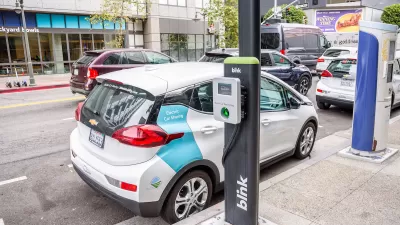The model comes with high costs that make it unsustainable without subsidies.

Writing in Next City, Nithin Coca attempts to suss out why car-sharing companies keep going out of business: largely, their for-profit model, which doesn’t lend itself to the type of service coverage they would need to provide.
According to Coca, “For-profit car-sharing models have a fundamental challenge: They need to set prices high enough to at least break even. Often, that means prices are too high for those in low-income communities, who tend to have less access to cars and public transportation in general.” For this reason, companies have stuck largely to more well-off neighborhoods where residents are already more likely to own cars.
One new California car-sharing service, Míocar, operates in low-income areas supported by a grant from the California Air Resources Board. “It’s also seeing high utilization rates, with cars sometimes booked months in advance.” However, Caroline Jane Rodier, Associate Director of the Urban Land Use and Transportation Center at the University of California, Davis, warns that “Without subsidies, it’s not going to work.”
If successful, Míocar “could point towards a new non-profit model for car-sharing, where the focus is on equity, access and climate benefits from reduced emissions and fossil fuel consumption.”
Coca points out that ‘free-flowing’ car-sharing systems are thriving in other countries, perhaps signaling a stronger demand in places where car ownership is itself more expensive.
FULL STORY: Another Car-Sharing Startup Is Dead. Why Is Car Sharing So Difficult?

Alabama: Trump Terminates Settlements for Black Communities Harmed By Raw Sewage
Trump deemed the landmark civil rights agreement “illegal DEI and environmental justice policy.”

Planetizen Federal Action Tracker
A weekly monitor of how Trump’s orders and actions are impacting planners and planning in America.

The 120 Year Old Tiny Home Villages That Sheltered San Francisco’s Earthquake Refugees
More than a century ago, San Francisco mobilized to house thousands of residents displaced by the 1906 earthquake. Could their strategy offer a model for the present?

Ken Jennings Launches Transit Web Series
The Jeopardy champ wants you to ride public transit.

BLM To Rescind Public Lands Rule
The change will downgrade conservation, once again putting federal land at risk for mining and other extractive uses.

Indy Neighborhood Group Builds Temporary Multi-Use Path
Community members, aided in part by funding from the city, repurposed a vehicle lane to create a protected bike and pedestrian path for the summer season.
Urban Design for Planners 1: Software Tools
This six-course series explores essential urban design concepts using open source software and equips planners with the tools they need to participate fully in the urban design process.
Planning for Universal Design
Learn the tools for implementing Universal Design in planning regulations.
Clanton & Associates, Inc.
Jessamine County Fiscal Court
Institute for Housing and Urban Development Studies (IHS)
City of Grandview
Harvard GSD Executive Education
Toledo-Lucas County Plan Commissions
Salt Lake City
NYU Wagner Graduate School of Public Service





























